Science & Society

Educators and Parents, Sign Up for The Cheat Sheet
Weekly updates to help you use Science News Explores in the learning environment
Thank you for signing up!
There was a problem signing you up.
-
 Science & Society
Science & SocietyLet’s learn about why schools should start later
The American Academy of Pediatrics recommends that middle and high schools start no earlier than 8:30 a.m.
-
 Chemistry
ChemistryWas that fingerprint left during a crime? A new test may answer that
In what could be a boon to forensics, Iowa State University chemists have come up with a way to analyze the age of fingerprints.
-
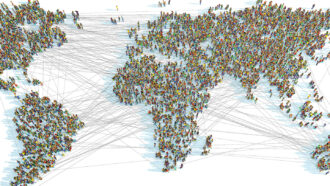 Tech
TechWill the internet soon reach the one-third of people without it?
Access to the internet is a human right, yet much of the world can’t get online. New tech has to be affordable and usable to end this digital divide.
-
 Math
MathMeet the newest additions to the metric system
The metric system just got its first update in 30 years. New prefixes will help scientists interpret the biggest — and smallest — numbers.
-
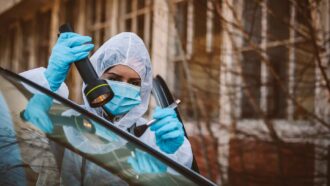 Chemistry
ChemistryForensic scientists are gaining an edge on crime
Advances in forensic science are helping to recover invisible fingerprints and identify missing people from bits of tissue or bone.
-
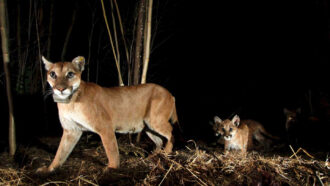 Animals
AnimalsCougars pushed out by wildfires took more risks around roads
After an intense burn in 2018 in California, big cats in the region crossed roads more often. That put them at higher risk of becoming roadkill.
-
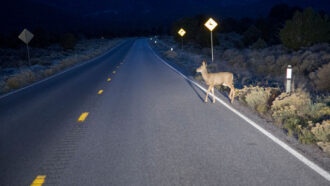 Animals
AnimalsCars hit more deer in the week after daylight saving time ends
In the days right after most Americans turn back the clock, vehicle crashes with deer increase by 16 percent, a new study shows.
-
 Agriculture
AgricultureLet’s learn about eating bugs
Eating more insects, rather than pork, beef or other kinds of meat, may be better for the planet.
-
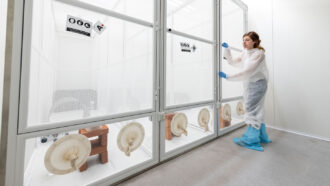 Health & Medicine
Health & MedicineShould we use a genetic weapon against mosquitoes carrying malaria?
One gene drive to eliminate malaria seems to work in the lab. Now it’s time to ask local people if they want it released in the wild.
-
 Psychology
PsychologyWhy fandom feels good — and may be good for you
Psychologists and media scholars are looking into the who, why and how of becoming a fan.
-
 Science & Society
Science & SocietyWhat’s the fun in fear? Science explores the appeal of scary movies
On its face, the appeal of horror doesn’t make much sense. But scientists are starting to uncover who’s most likely to enjoy scary films and why.
-
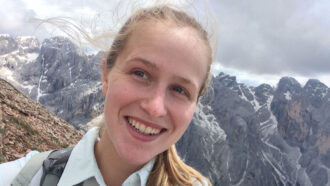 Space
SpaceThis physicist hopes to shake up our understanding of space
Adeene Denton uses a combination of geology, astrophysics and coding to better understand the structure of planets.